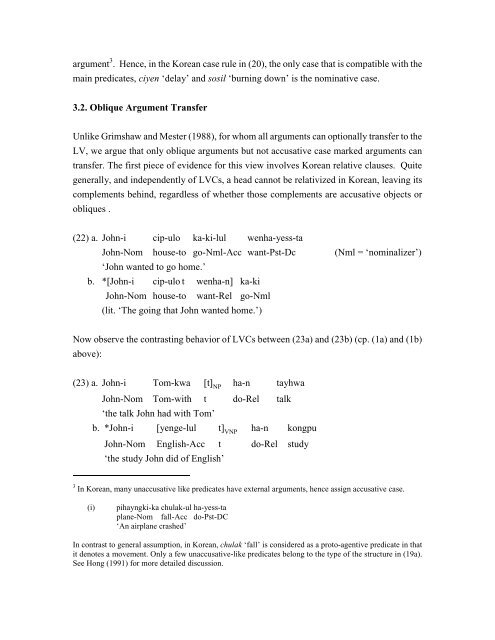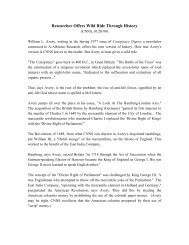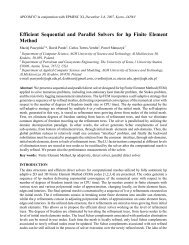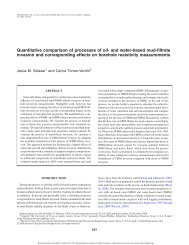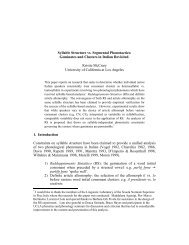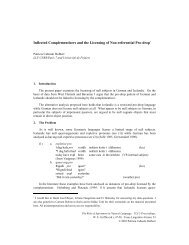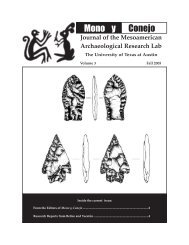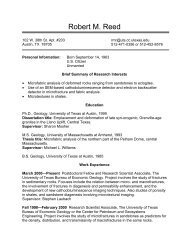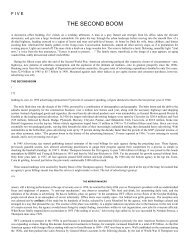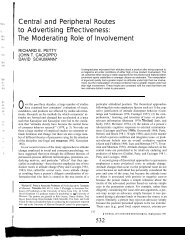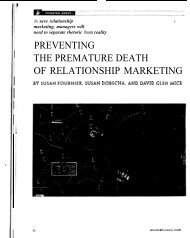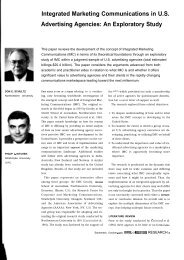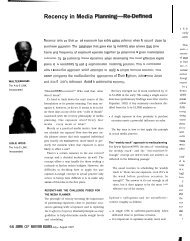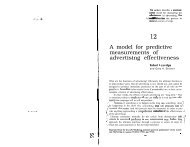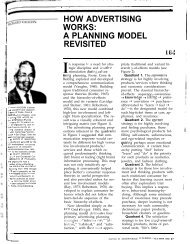Mixed Categories and Argument Transfer in the Korean Light Verb ...
Mixed Categories and Argument Transfer in the Korean Light Verb ...
Mixed Categories and Argument Transfer in the Korean Light Verb ...
You also want an ePaper? Increase the reach of your titles
YUMPU automatically turns print PDFs into web optimized ePapers that Google loves.
argument 3 . Hence, <strong>in</strong> <strong>the</strong> <strong>Korean</strong> case rule <strong>in</strong> (20), <strong>the</strong> only case that is compatible with <strong>the</strong><br />
ma<strong>in</strong> predicates, ciyen ‘delay’ <strong>and</strong> sosil ‘burn<strong>in</strong>g down’ is <strong>the</strong> nom<strong>in</strong>ative case.<br />
3.2. Oblique <strong>Argument</strong> <strong>Transfer</strong><br />
Unlike Grimshaw <strong>and</strong> Mester (1988), for whom all arguments can optionally transfer to <strong>the</strong><br />
LV, we argue that only oblique arguments but not accusative case marked arguments can<br />
transfer. The first piece of evidence for this view <strong>in</strong>volves <strong>Korean</strong> relative clauses. Quite<br />
generally, <strong>and</strong> <strong>in</strong>dependently of LVCs, a head cannot be relativized <strong>in</strong> <strong>Korean</strong>, leav<strong>in</strong>g its<br />
complements beh<strong>in</strong>d, regardless of whe<strong>the</strong>r those complements are accusative objects or<br />
obliques .<br />
(22) a. John-i cip-ulo ka-ki-lul wenha-yess-ta<br />
John-Nom house-to go-Nml-Acc want-Pst-Dc (Nml = ‘nom<strong>in</strong>alizer’)<br />
‘John wanted to go home.’<br />
b. *[John-i cip-ulo t wenha-n] ka-ki<br />
John-Nom house-to want-Rel go-Nml<br />
(lit. ‘The go<strong>in</strong>g that John wanted home.’)<br />
Now observe <strong>the</strong> contrast<strong>in</strong>g behavior of LVCs between (23a) <strong>and</strong> (23b) (cp. (1a) <strong>and</strong> (1b)<br />
above):<br />
(23) a. John-i Tom-kwa [t] NP ha-n tayhwa<br />
John-Nom Tom-with t do-Rel talk<br />
‘<strong>the</strong> talk John had with Tom’<br />
b. *John-i [yenge-lul t] VNP ha-n kongpu<br />
John-Nom English-Acc t do-Rel study<br />
‘<strong>the</strong> study John did of English’<br />
3 In <strong>Korean</strong>, many unaccusative like predicates have external arguments, hence assign accusative case.<br />
(i) pihayngki-ka chulak-ul ha-yess-ta<br />
plane-Nom fall-Acc do-Pst-DC<br />
‘An airplane crashed’<br />
In contrast to general assumption, <strong>in</strong> <strong>Korean</strong>, chulak ‘fall’ is considered as a proto-agentive predicate <strong>in</strong> that<br />
it denotes a movement. Only a few unaccusative-like predicates belong to <strong>the</strong> type of <strong>the</strong> structure <strong>in</strong> (19a).<br />
See Hong (1991) for more detailed discussion.


